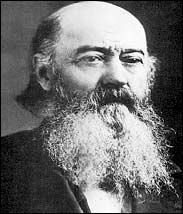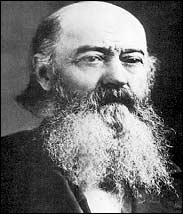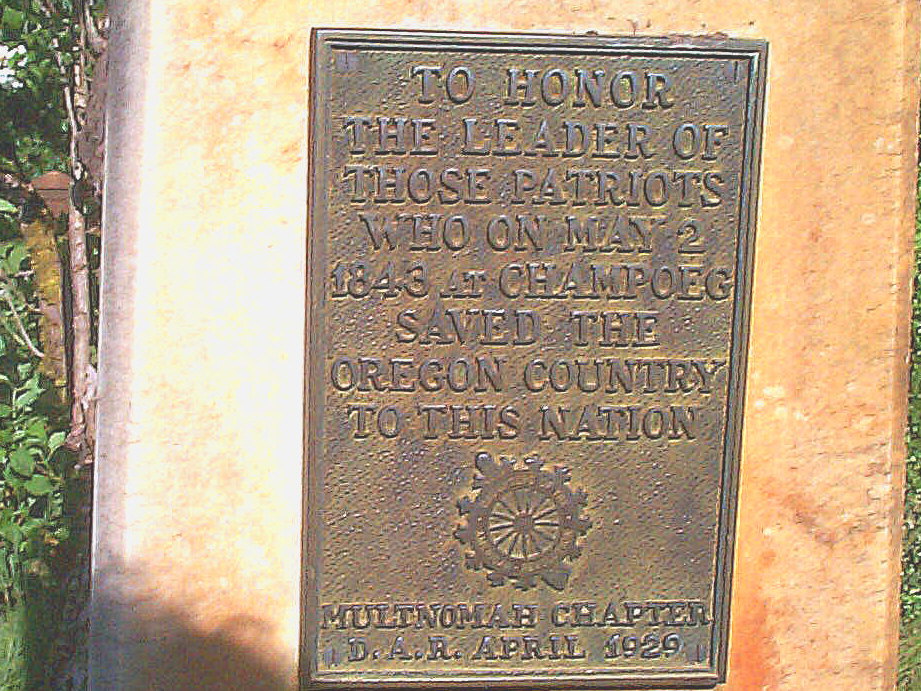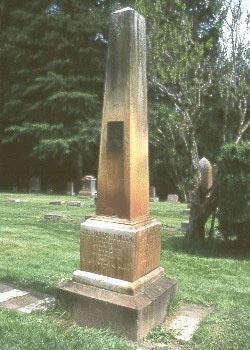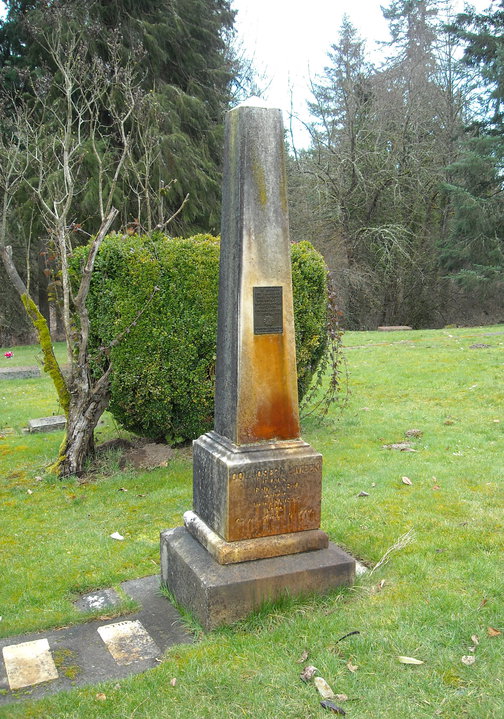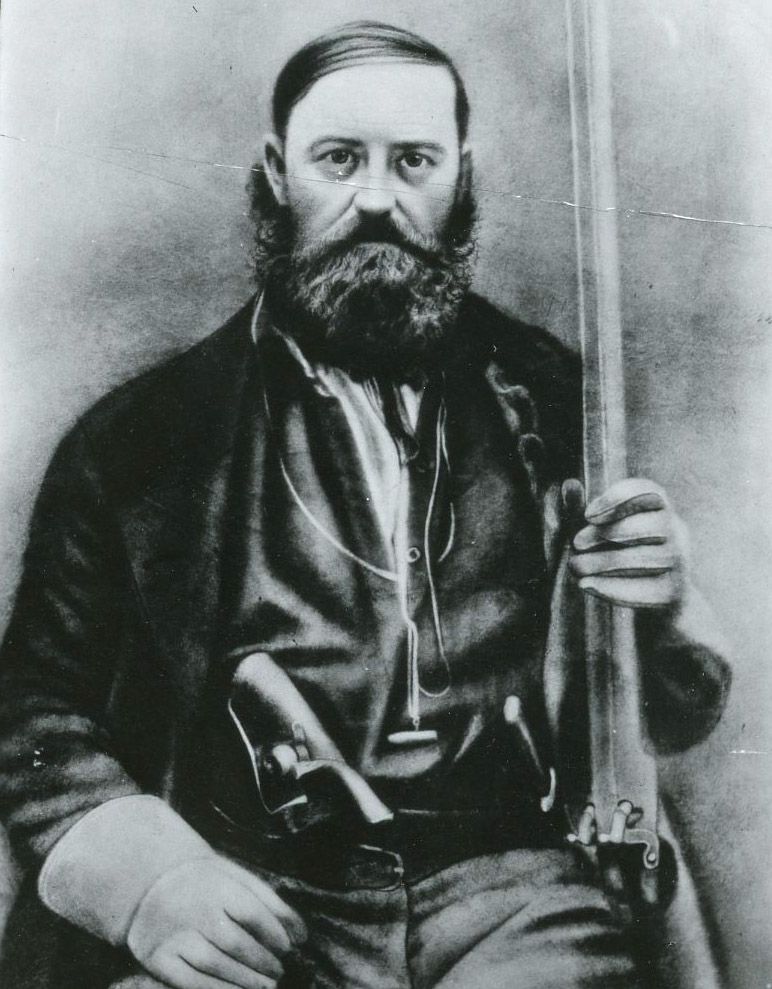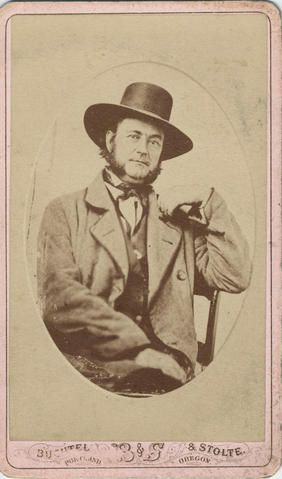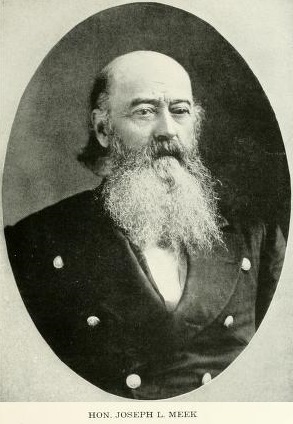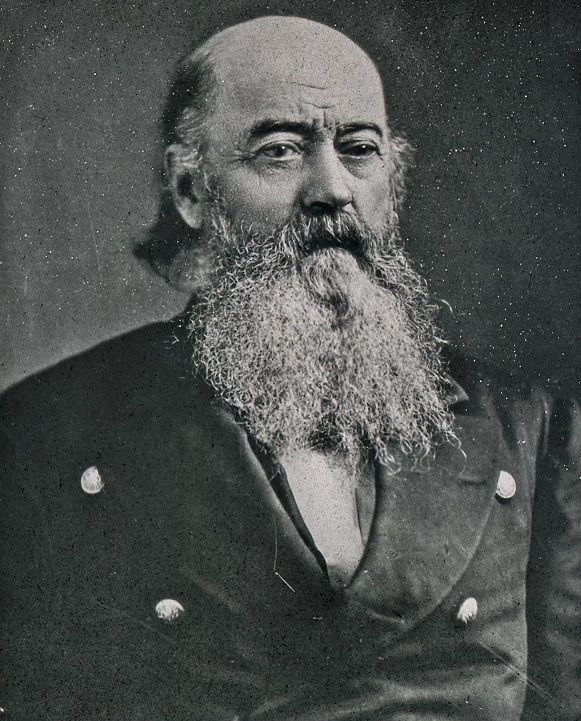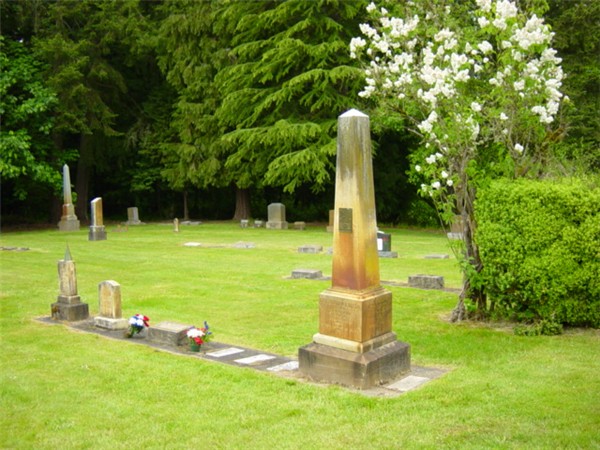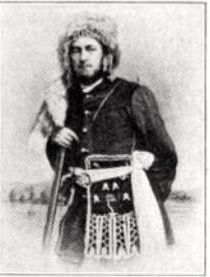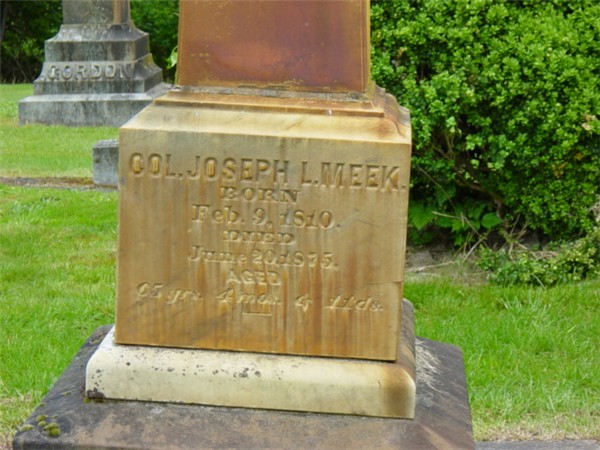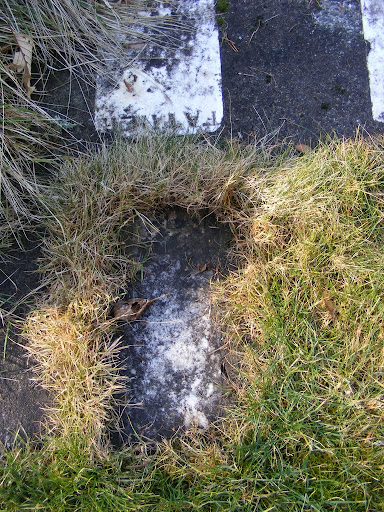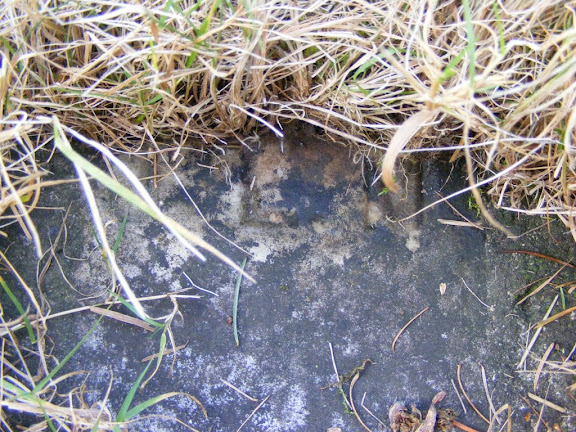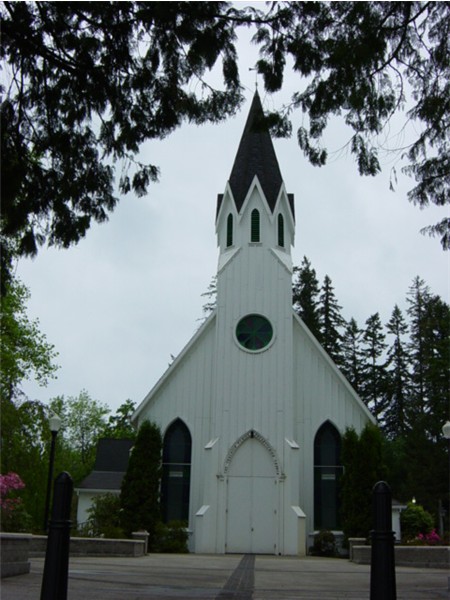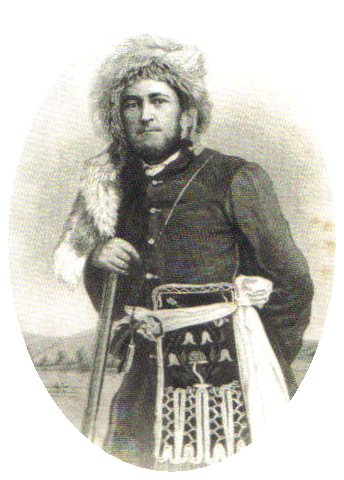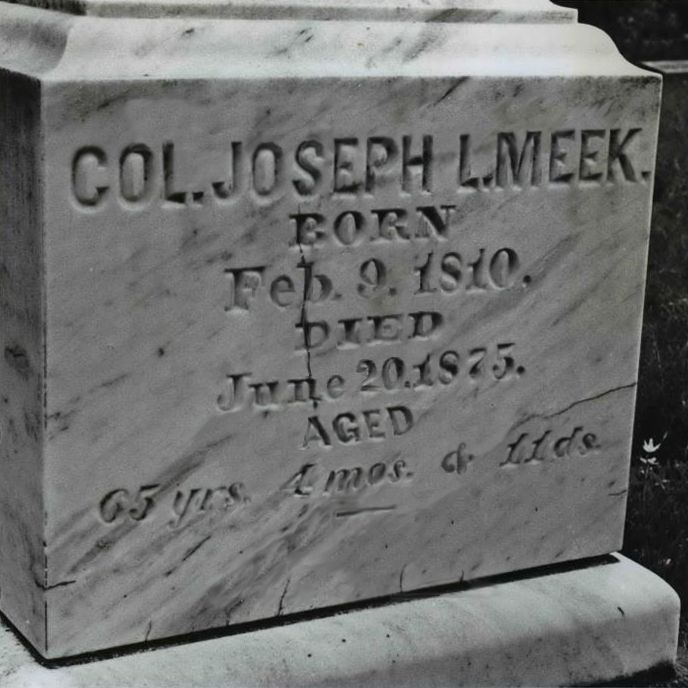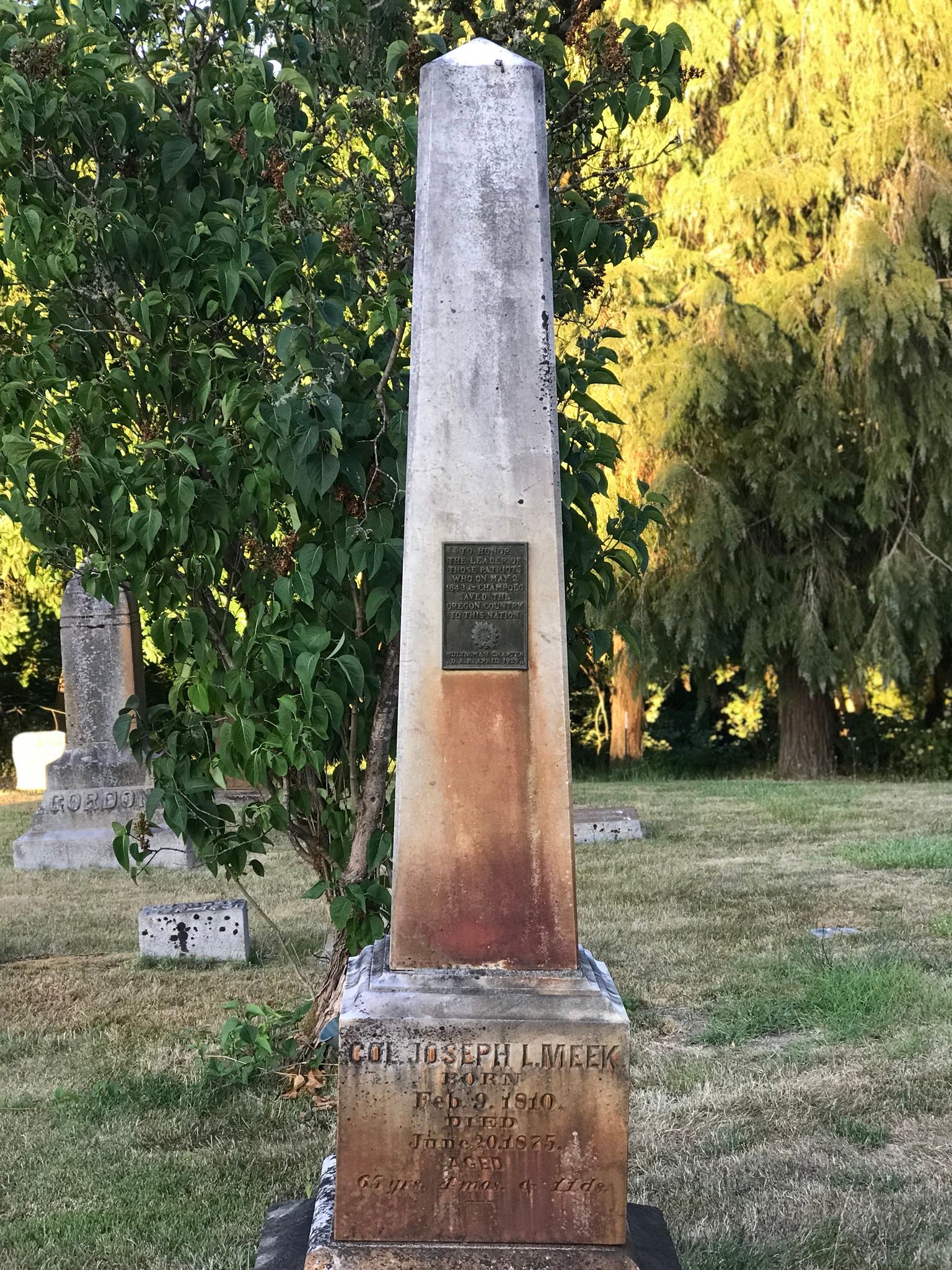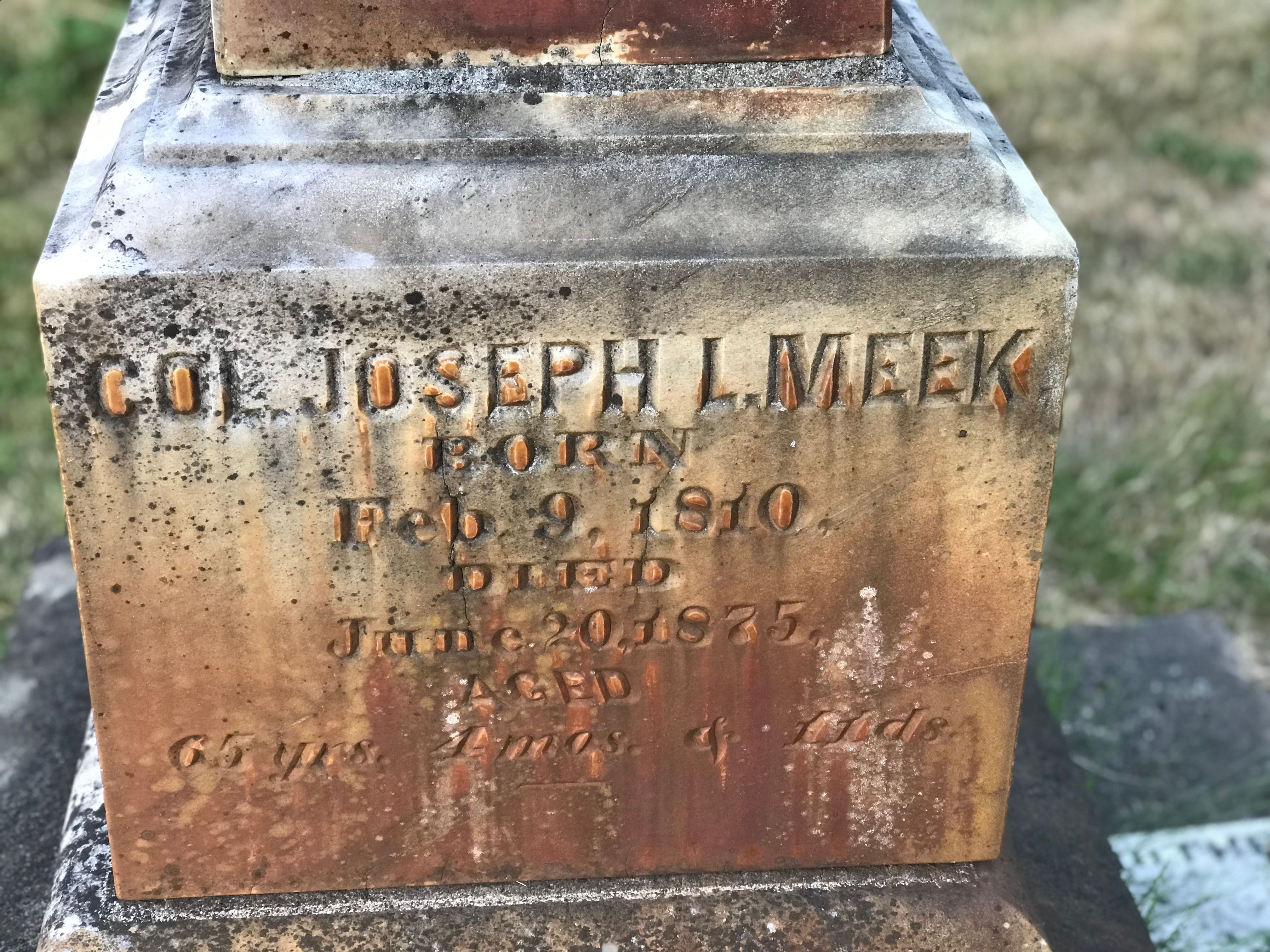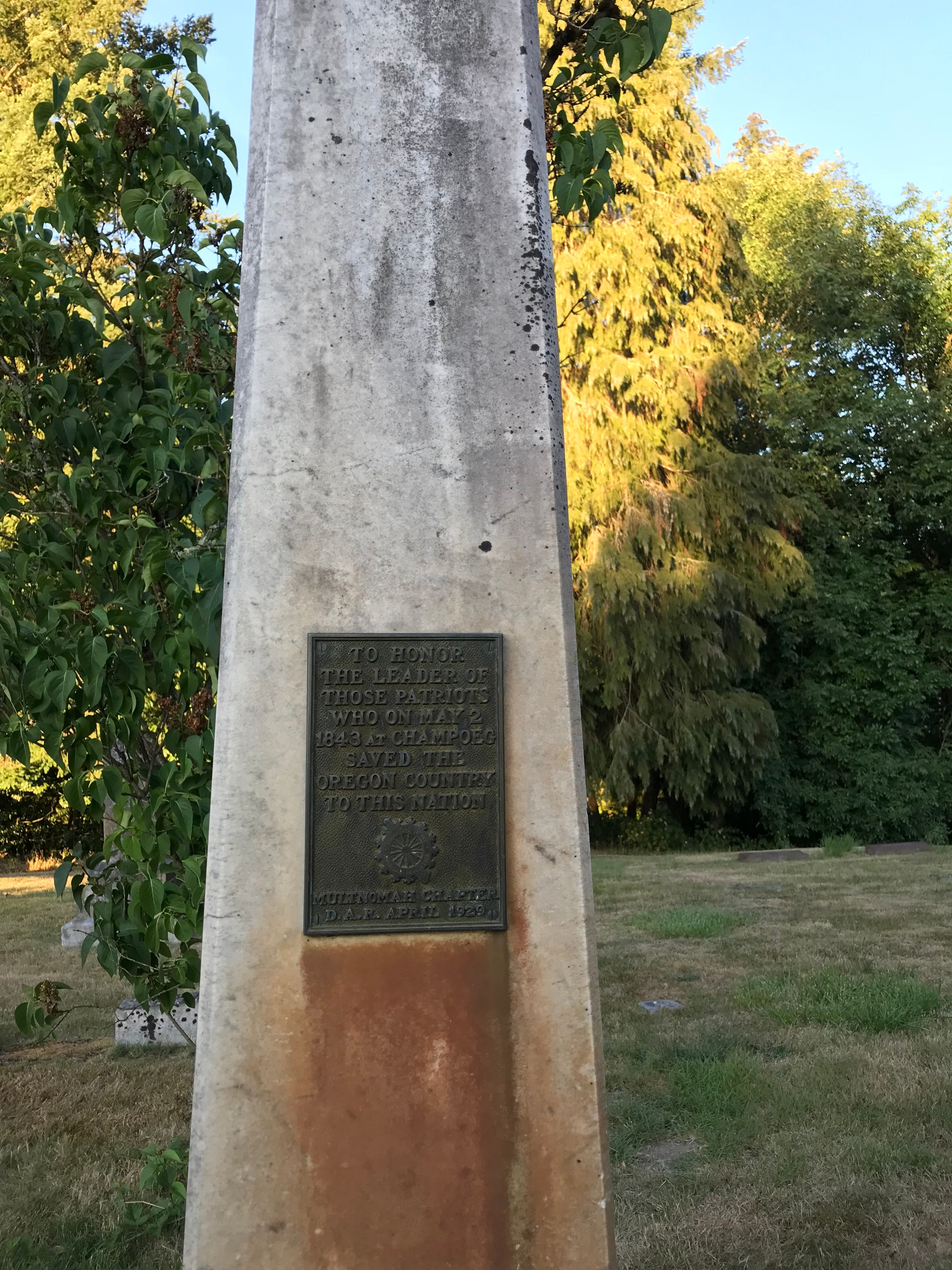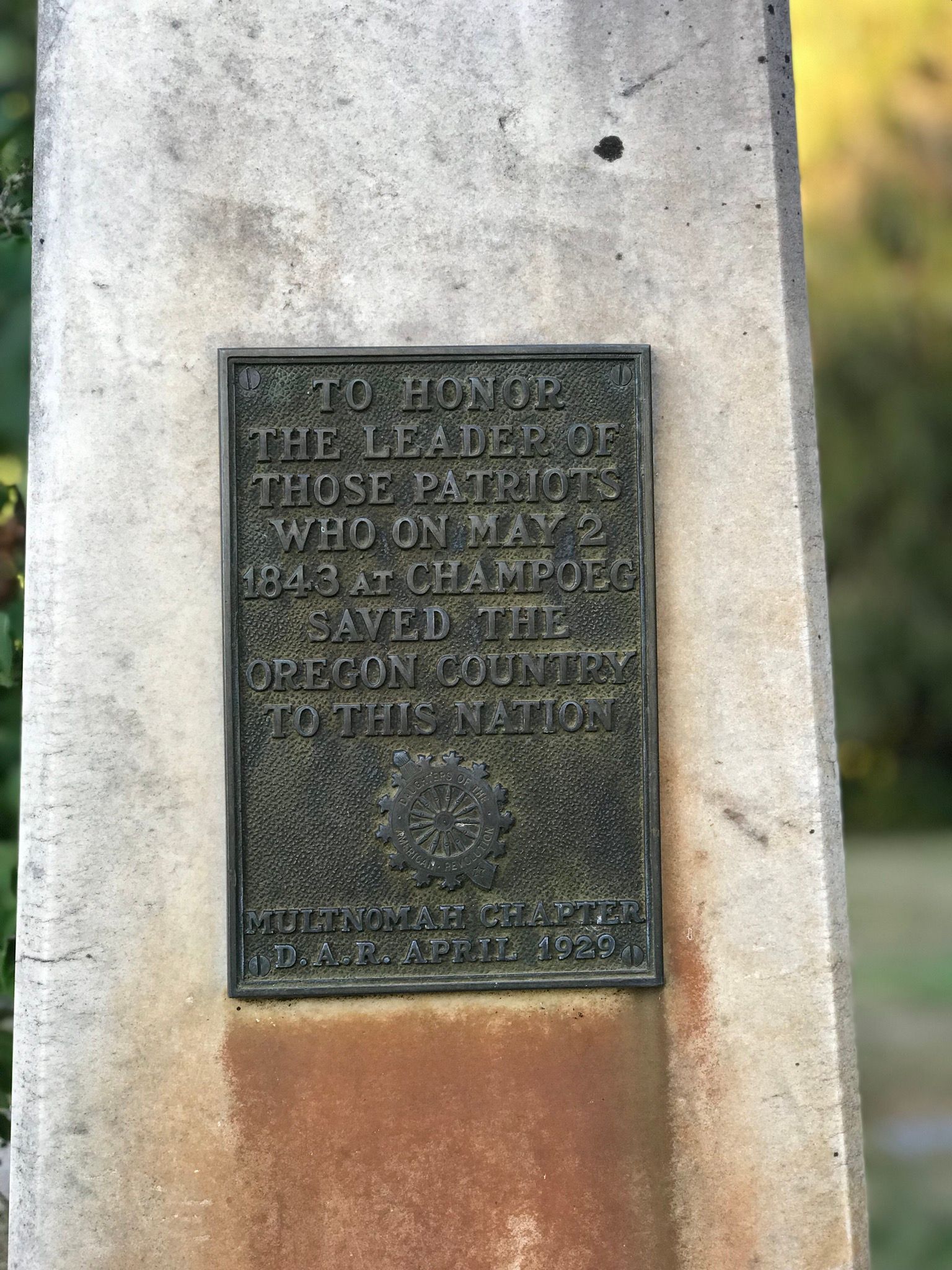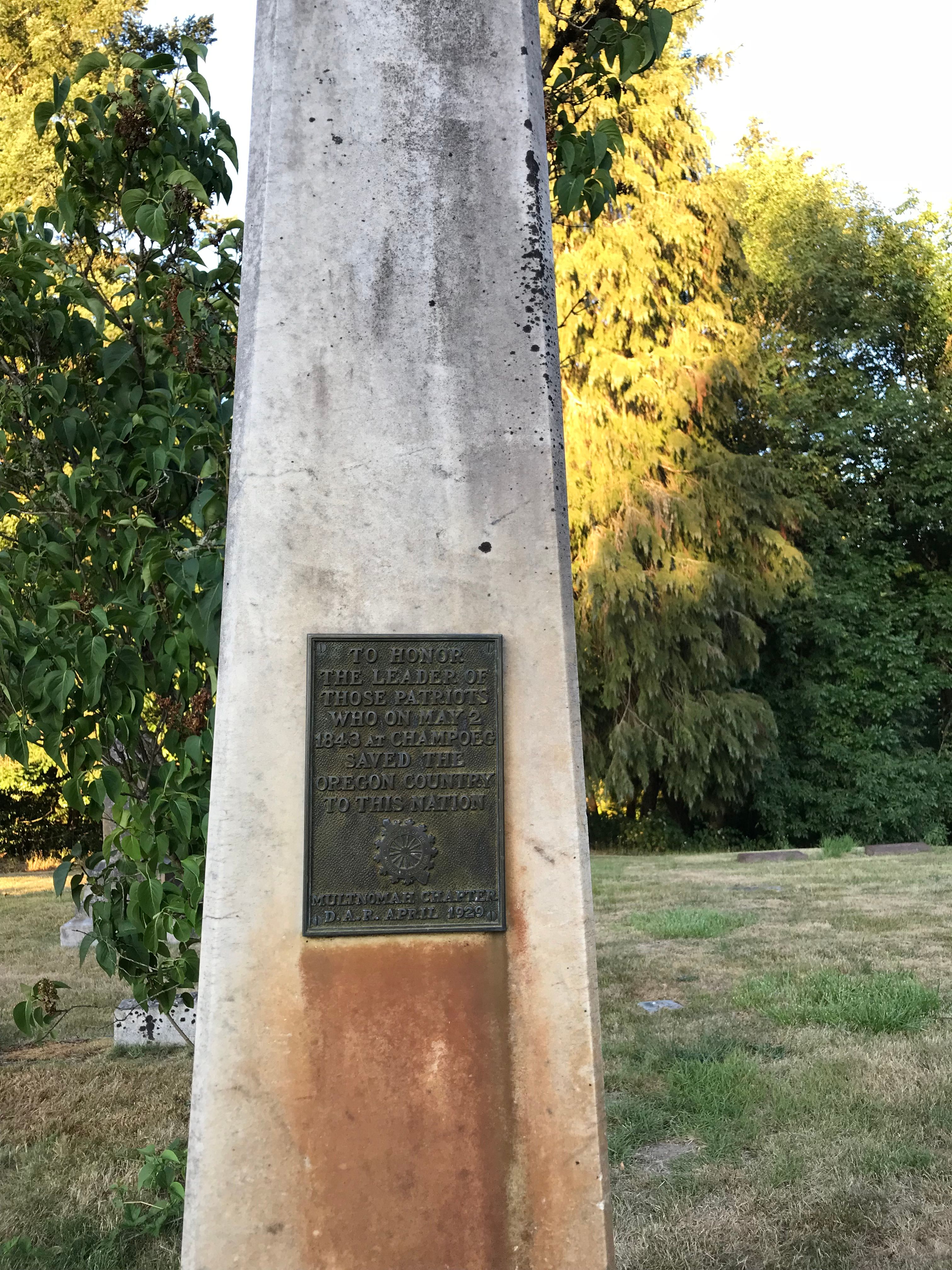In 1829 he joined William Sublette and for the next eleven years lived the life of a mountain man. Meek fought off a grizzly, engaged in hand-to-hand combat with a Bannock warrior, participated in the famed battle of Pierre's Hole, and joined the Joseph Walker expedition to California.
In the 1840s, fur trading began to wane so Meek headed on to Oregon escorting one of the first wagon trains. He settled in Oregon and became a farmer. Meek served as sheriff in 1843 and legislature in 1846 and 1847.
Meek visited Washington, DC where he met with President Polk to discuss matters of the Whitman Massacre and the outbreak of the Cayuse War in the Oregon Territory. Meek presented his case for making Oregon Territory a federal territory, which came to fruition with the appointment of Joe Lane as Territorial Governor and Meek as Territorial Federal Marshall.
As Federal Marshal, Joe Meek supervised the hanging of five Cayuse Indians found guilty of the Whitman Massacre. Organizing the Oregon Volunteers, Joe Meek led this group in the Yakima Indian War eventually becoming a major for his service. Meek's first wife had been tragically killed by a raiding party some years prior.
Meek was described as "the Davy Crockett of our Great Northwest, bold, adventurous, humorous, a first-class trapper, pioneer, peace officer, and frontier politician. More, he was the wittiest, saltiest, most shameless wag and jester that ever wore moccasins in the Rockies - a tall happy-go-lucky Virginian lover of practical jokes, tall tales, Jacksonian Democracy and Indian women."
In 1829 he joined William Sublette and for the next eleven years lived the life of a mountain man. Meek fought off a grizzly, engaged in hand-to-hand combat with a Bannock warrior, participated in the famed battle of Pierre's Hole, and joined the Joseph Walker expedition to California.
In the 1840s, fur trading began to wane so Meek headed on to Oregon escorting one of the first wagon trains. He settled in Oregon and became a farmer. Meek served as sheriff in 1843 and legislature in 1846 and 1847.
Meek visited Washington, DC where he met with President Polk to discuss matters of the Whitman Massacre and the outbreak of the Cayuse War in the Oregon Territory. Meek presented his case for making Oregon Territory a federal territory, which came to fruition with the appointment of Joe Lane as Territorial Governor and Meek as Territorial Federal Marshall.
As Federal Marshal, Joe Meek supervised the hanging of five Cayuse Indians found guilty of the Whitman Massacre. Organizing the Oregon Volunteers, Joe Meek led this group in the Yakima Indian War eventually becoming a major for his service. Meek's first wife had been tragically killed by a raiding party some years prior.
Meek was described as "the Davy Crockett of our Great Northwest, bold, adventurous, humorous, a first-class trapper, pioneer, peace officer, and frontier politician. More, he was the wittiest, saltiest, most shameless wag and jester that ever wore moccasins in the Rockies - a tall happy-go-lucky Virginian lover of practical jokes, tall tales, Jacksonian Democracy and Indian women."
Bio by: RB
Family Members
-
![]()
Courtney Walker Meek
1838–1896
-
Helen Mar Meek
1840–1847
-
![]()
Hiram Craig Meek
1842–1858
-
![]()
Olive Louise Meek Riley
1844–1928
-
![]()
Josephine Meek
1845–1860
-
![]()
Atchinson Dallas Meek
1847–1858
-
![]()
Mary Lane Meek Shinn
1850–1878
-
![]()
Jennie M. Meek Newhard
1852–1919
-
![]()
Joseph Lane Meek
1855–1920
-
![]()
Stephen Arnold Douglas Meek
1857–1943
-
![]()
William Henry Harrison Meek
1860–1860
-
![]()
Elizabeth Wilkins "Lizzie" Meek
1861–1876
